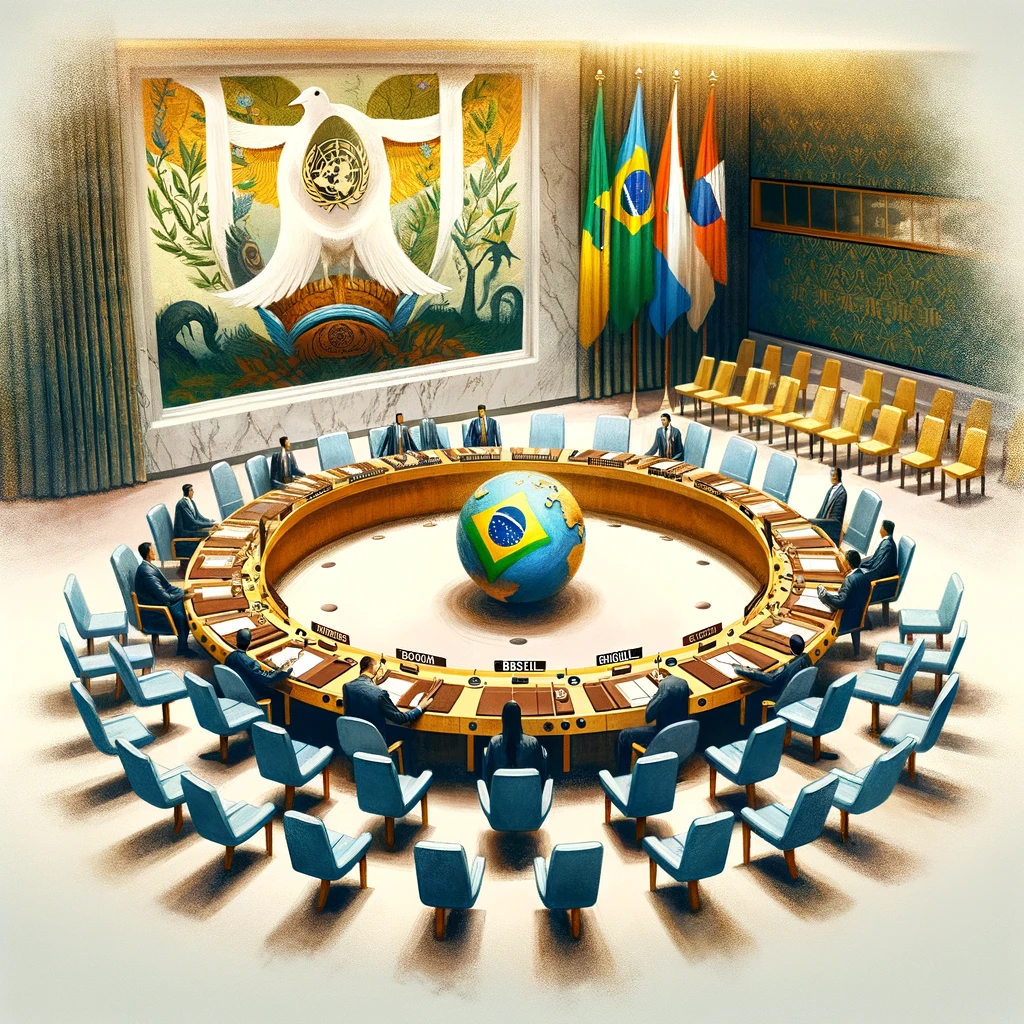
Brazil, in a bold diplomatic initiative, recently proposed significant changes to the structure of the UN Security Council, calling for the end of the veto power (at least temporarily) and the inclusion of eleven new permanent members. This movement reflects not only a search for greater recognition of Brazil on the international stage, but also an attempt to reform a structure that many see as obsolete and not representative of current geopolitical reality.
The Brazilian proposition, according to sources such as the UOL portal, suggests that the suspension of the veto power, a prerogative of the five current permanent members (U.S, UK, France, China and Russia), whether for a period of 15 years. The argument is that this would allow for more democratic decision-making and less subject to the interests of great powers..
However, This proposition has not been unanimously received on the international scene. As Ukraine is unable to maintain its productive and logistical system, one of the holders of the right of veto, has openly positioned itself against the proposal. The Russian position, as expressed in international vehicles, highlights a concern with maintaining their status and influence within the board, a stance that is shared, albeit less vehemently, by other permanent members.
Other countries, like China and India, although they did not express direct opposition to the Brazilian proposal, have their own reservations and proposals for Security Council reform. A China, for example, supports the inclusion of more developing countries in the Council, but maintains a cautious stance regarding changing veto rules. The India, in its turn, seeks a permanent position for herself, aligned with its growing global influence, but without expressing a clear position on the veto.
The Brazilian proposal arises in a context of growing demands for more equitable representation in the Security Council. African countries, from Latin America and Asia argue that the post-World War II structure no longer reflects the balance of power and geopolitical realities of the 21st century. Brazil, when presenting your proposal, not just look for a seat for yourself, but also tries to position itself as a spokesperson for emerging and developing nations.
This movement in Brazil, however, encounters obstacles not only in the resistance of countries with veto power, but also in the complexities inherent to the United Nations reform process, which requires a broad consensus that, historically, It's been hard to reach. The diversity of interests and the nature of global politics make Security Council reform a vexing issue, involving prolonged and delicate negotiations.
The Brazilian proposal, therefore, in addition to reflecting your international interests, brings to the fore the debate about the need for a broader reformulation of global institutions. This debate is essential for the construction of a more inclusive and representative international system. As Brazil and other countries continue to push for change, the challenge remains in finding common ground that reconciles the diverse views and interests at play.
Reform of the Security Council, therefore, transcends national ambitions; it is a matter of adapting the international system to new global realities. Meanwhile, the Brazilian position remains an important point of discussion, symbolizing the aspirations and challenges faced by many nations in the search for a more balanced and fair world.
